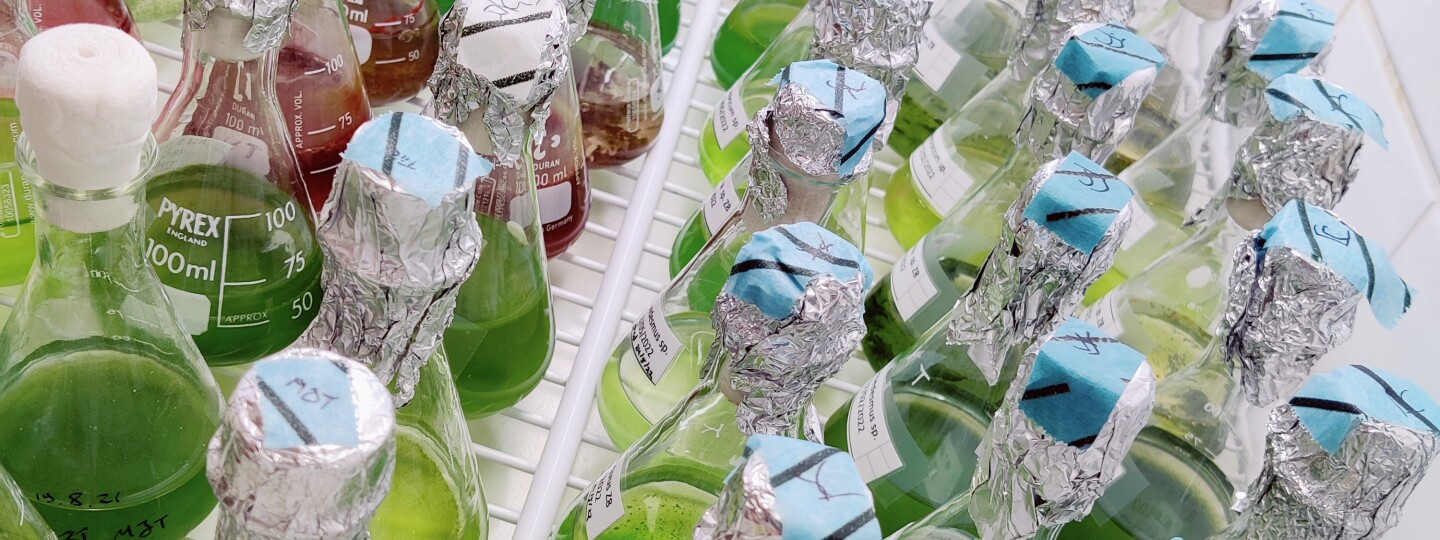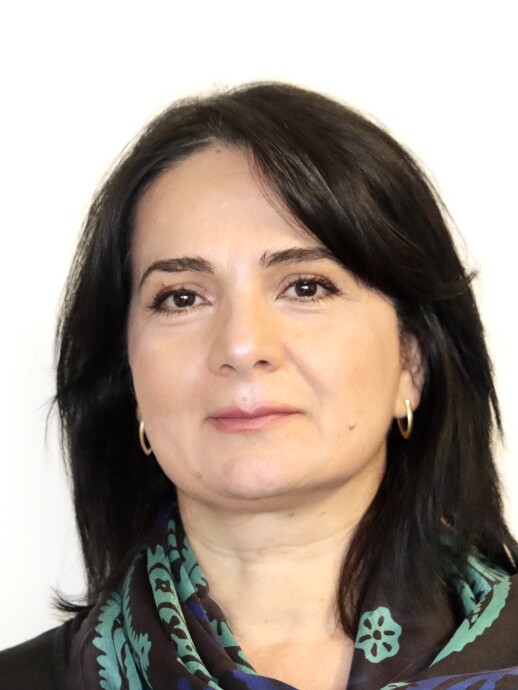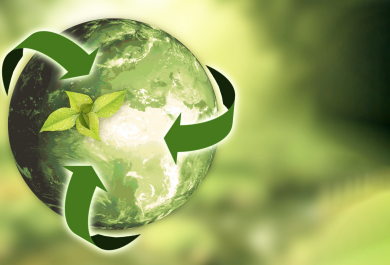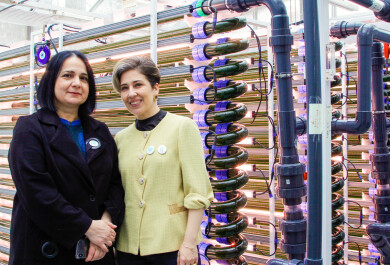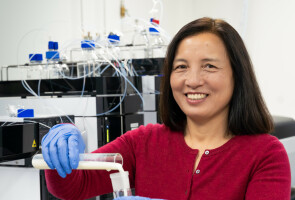The Photosynthetic Microbes team from the University of Turku received over 900 000 € to build a large algae plant for the validation of cultivation processes in the Nordic environment. The team will grow microalgae in drain water from greenhouses to clean water, recover nutrients and lower microalgae production costs.
The European Commission allocated over 8.5 M € to “REALM” Europe Horizon Innovation Action consortium. The consortium brings together 6 academic and 10 industry partners to unlock the potential of algae for a thriving European blue bioeconomy. The University of Turku is one of the academic partners and will build a 1m3 photobioreactor in the Ruissalo greenhouse to cultivate Nordic algae for circular blue biorefineries.
Photosynthetic algae and cyanobacteria provide third generation sustainable biomass to the bioeconomy sector. These microbes use energy from the Sun to split water and convert atmospheric carbon dioxide into biomass. They also need inorganic nutrients (nitrogen and phosphorus) to grow. Algal biomass can be sustainably produced and utilized as high-quality food, feed or as a source of various chemicals and fuels. Despite this enormous potential, the algae sector is still facing hurdles regarding the economic feasibility of algal biomass applications. Specifically, the production cost of algal biomass is the major bottleneck for commercialization of microalgae based products. Algae cultivation is particularly challenging in the Nordic climate, where a low number of sunny days and cold winters are experienced each year.
"The main objective of this project is to develop an innovative, sustainable, and highly controllable microalgae production system applicable to Finland", says the leader of the research group, Yagut Allahverdiyeva, Professor of Molecular Plant Biology at the University of Turku.
"Our team will integrate algae cultivation into current greenhouse infrastructure. We utilize the abundance and diversity of microalgae isolated from the Nordic environment, from the Baltic Sea and Finnish lakes, thus advancing research applicable to Finnish blue biorefineries."
By using the drain water from agriculture as an algal growth medium, the project targets the transformation of waste into high value algal biomass. We have established working relationships with well-known European algae companies and academic partners to make the production of microalgae more efficient and cost-effective through automated monitoring of cultures in real time and the application of AI-based predictive models. Reusing nutrient-rich run-off from greenhouses as cultivation media is expected to halve microalgae production costs, with clean effluent being a no-cost benefit of the system. Obtained algal biomass will be valorised as novel agrichemicals in the form of plant biostimulants and biopesticides.
The Maa- ja vesitekniikan tuki ry foundation recently donated 500 000 € to the Turku Photosynthetic Microbes group to strengthen algae research and education. Moreover, the Industry Tandem Academy foundation have also allocated research funding to algal research thus giving us opportunity to expand the algae project to further applications, including high-value chemicals, food and feed. The team is committed to advancing microalgae farming biotechnology from a small niche area of research to a true, competitive alternative to food, feed and fossil fuel based chemical synthesis in the Nordic region.
This research stemed from the NordAqua Nordic Centre of Excellence funded by the NordForsk Bioeconomy programme and led by Prof. Allahverdiyeva.
